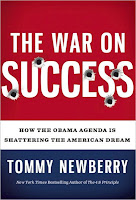 |
| Amy Winehouse (1983-2011) |
For instance, the beam of light that might make the atomic event visible to the scientists produces enough energy to influence the atoms being observed.
In a sense, this means humans can perhaps never know the "pure" state of existence of the universe at its most basic level, since the attempt to know it changes it.
Something similar occurs in the world of artistic expression.
For example, would Amy Winehouse, who died July 23, have lived longer if she had never been discovered by the music industry and the popular media? Her fame and fortune did not cause her emotional problems and her chemical addictions, but the pressures and chaos introduced into her life by stardom apparently made those problems worse.
The troubles of her life helped produce the music that many people loved, which is ironic enough. Are we at some level happy that she was unhappy enough to produce the music that we enjoyed because it made us feel unhappy?
More ironic is that the music world loved her and that love likely sped up the self-destructive cycles that produced the power of her music and voice.
I wonder how much longer she might have lived if she had not become such an international sensation. Suppose she had been an appreciated night club singer. Suppose she had been able to make a living as a song writer and a performer without the pressures of music studio executives and concerts in large arenas.
A friend of mine made the perceptive statement that Winehouse's demons may have involved low self-esteem. He speculated that the more praise and fame she received, the more pressure she felt to live up to a standard she believed was impossible for her to achieve.
Think of her as a flower. Let's say some people find a flower they admire and wish to share with others, so they remove the flower from its original environment. In its new location, many people can see and enjoy it, but it quickly dies -- so now no one can see it and enjoy it. If the flower had just been left alone, it and the qualities that had made it attractive would still exist.
The observer effect.
 |
| Seraphine Louis (1864-1942) |
(I do not know that she was diagnosed as schizophrenic -- if that diagnosis even existed in her lifetime. But her art shows a progression similar to the work of schizophrenics, such as Louis Wain: from relative simplicity to sublime intensity of detail.)
If the film is accurate in depicting her life, she did not seem to care whether people bought her works, although she took great pride in them. The painting was the point, not the reception.
 |
| L'abre de Vie |
She wound up in an insane asylum, and there she never painted again.
The German collector rightful recognized her wonderful talents, and he tried to make her life better, but was she better off for it?
One could say that Winehouse's fame and wealth created opportunities for her to seek help for her various problems. If she had remained relatively obscure, would she have had the same opportunities? One could say that without the interest of an art collector, Seraphine would have died poor and most likely homeless. His attention made it possible for her to live with some comfort, although without the art. But suppose he had not altered her life as much as he did? Perhaps she might have coped better.
We cannot know which path would have been better for Winehouse and Seraphine, since we know only the trajectory that came after the observer effect. While some objects are large enough to withstand the influence of their measurement, others are too small to withstand the attention. Similarly, some artists can withstand fame and fortune, but others are too vulnerable.
I think cases like Winehouse and Seraphine do show that sometimes it is best for an artist, like that flower, to remain close to the soil that produced her. Perhaps if their lives had been less altered, they might have lived longer to enjoy and develop their talents.










